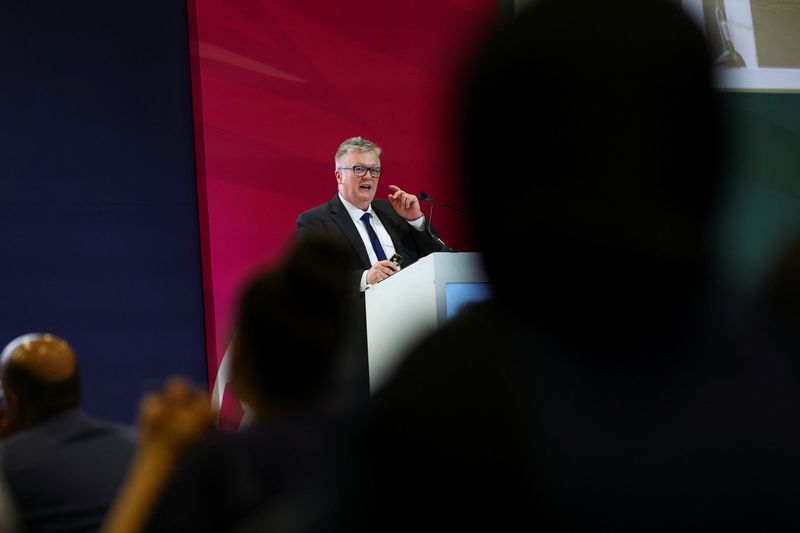CAPE TOWN (Reuters) -The Bank of England remains concerned about sticky inflation as underlying measures of price growth have not yet fallen in the same way that headline inflation has, its Chief Economist Huw Pill said on Friday.
Consumer price inflation has dropped to 6.8% since hitting a 41-year high of 11.1% in October. But core inflation, which excludes more volatile goods, did not peak until May and is now higher than headline inflation.
"We are yet to see the downturn in core inflation, the downturn in services price inflation that we need to see, to be reassured that we're going to get back to target in a timely manner," Pill told a conference hosted by the South African Reserve Bank in Cape Town.
"The Bank of England ... has to be particularly cautious, particularly wary of allowing a dynamic to emerge that leads to (inflation) persistence."
The BoE has raised rates 14 times since December 2021, and investors see a 75% chance that it will raise them to 5.5% this month and a peak of 5.75% by the end of this year.
Pill repeated the BoE's message that it would "see the job through" on returning inflation to its 2% target, but also highlighted the risk of over-tightening.
The path for BoE rates was more likely to have a profile like that of Cape Town's Table Mountain - with a high, flat top - rather than Switzerland's Matterhorn, which had a much higher peak then descended rapidly, he said.
On Friday, Pill said he shared the concerns of SARB Governor Lesetja Kganyago that an extended period of low interest rates had made governments binge on cheap debt.
"We are in a process of normalisation and that's going to be a challenging process," Pill said.

He also said Britain last year had come close to the type of governance problems which affected emerging markets, when then-Prime Minister Liz Truss' tax cut plans caused a bond market slump that forced the BoE to intervene.
"That episode felt like we were by a river with lots of crocodiles in and we were dipping our toe (in)," Pill told Kganyago.